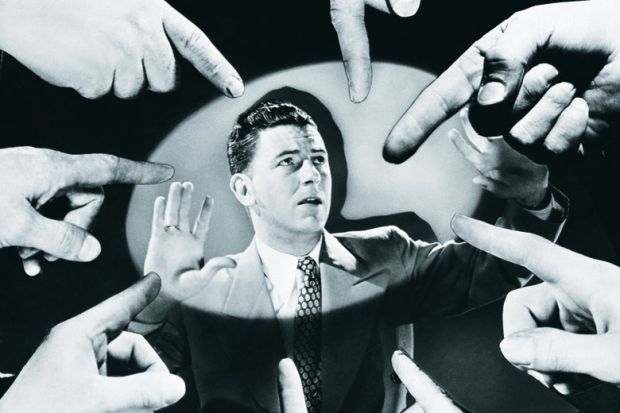Do resentful students get their own back on teachers by giving them lower marks in course evaluations? If Israeli academics are to be believed, they do.
A survey of 2,241 scholars working in the country’s higher education institutions found that nearly three-quarters (73 per cent) believed that students used evaluations in a vindictive manner, while more than half (52 per cent) thought that low-achieving undergraduates tended to give lower scores.
A significant minority (37 per cent) felt that course evaluations led to grade inflation, although more respondents (45 per cent) disagreed with this statement.
Lead author Ronen Hammer, head of the teaching improvement centre at Holon Institute of Technology, said that the findings were concerning because, regardless of whether or not these assumptions were correct, the fact that they were so widely believed raised questions about whether academics would engage with evaluation scores in order to improve their teaching.
In the survey, 55 per cent of respondents said that course evaluations “lack reliability and validity”, while 56 per cent said that students were “too immature” to assess teaching quality.
Opinion was split over whether students’ ratings were unreflective of actual learning (43 per cent agreeing and 45 per cent disagreeing) and whether evaluations were a popularity contest (41 per cent agreed, 48 per cent disagreed).
Interestingly, academics who felt that their teaching ability was underrated were significantly more likely to question the validity of evaluations.
Overall, 37.5 per cent of respondents felt that they were underrated, while 48 per cent felt that there was no gap between evaluations made by students and by themselves. Only 14.5 per cent of academics felt that students overrated their ability.
Dr Hammer, who conducted the research in 20 institutions with Eyal Pe’er of Bar-Ilan University and Elisha Babad of the Hebrew University of Jerusalem, said that the results suggested a need for managers to draw on alternative sources of information about teaching quality, such as peer assessments, alongside course evaluations.
“In many cases course evaluations are the only tool that management has to get information about the performance of faculty members, and it is the major tool faculty members have to receive feedback,” he said.
“I think faculty members would feel better if it was not so exclusive and if there were additional sources of information for assessing their performance.”
The survey, which is the subject of a forthcoming journal article, did find some positive views about course evaluations. Sixty-three per cent of respondents said that the data help them to identify weak aspects of their teaching, and 51 per cent said that they trusted students’ evaluations.
Forty-eight per cent of respondents felt that student evaluations should be a factor in decisions relating to promotion and tenure.
Register to continue
Why register?
- Registration is free and only takes a moment
- Once registered, you can read 3 articles a month
- Sign up for our newsletter
Subscribe
Or subscribe for unlimited access to:
- Unlimited access to news, views, insights & reviews
- Digital editions
- Digital access to THE’s university and college rankings analysis
Already registered or a current subscriber? Login








